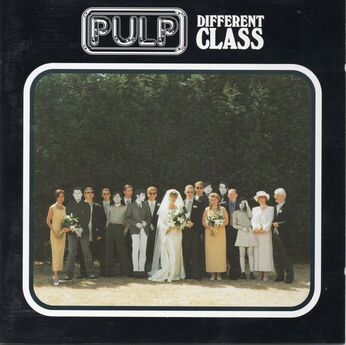In 1995 Britain was full of nationalistic hubris at the peak of the Britpop era, the musical antithesis to shoegazing and Seattle grunge that dominated the turn of the decade. Nobody cared yet about Y2K, the ‘Millennium Bug’ that threatened to cause a technological meltdown, much less Brexit. Thatcher was out, Major was in. Blair’s New Labour tapped into the sentiment of Cool Britannia, turning D:REAM’s “Things Can Only Get Better” into a campaign promise that led to a landslide election victory in 1997, ending eighteen years of Tory governance.
Pulp’s Different Class was released on the cusp of political change. The distinctively British album brimmed with sardonic wit, the mundane and the seedy, littered with tongue-in-cheek observations on everything from class in “Common People” to the rave scene in “Sorted For E’s & Wizz.” Frontman Jarvis Cocker’s bookish aesthetics and skinny blazers provided a counter to intolerant lad culture, captured in the album’s opening track “Mis-Shapes.”
Pulp’s Different Class was released on the cusp of political change. The distinctively British album brimmed with sardonic wit, the mundane and the seedy, littered with tongue-in-cheek observations on everything from class in “Common People” to the rave scene in “Sorted For E’s & Wizz.” Frontman Jarvis Cocker’s bookish aesthetics and skinny blazers provided a counter to intolerant lad culture, captured in the album’s opening track “Mis-Shapes.”
